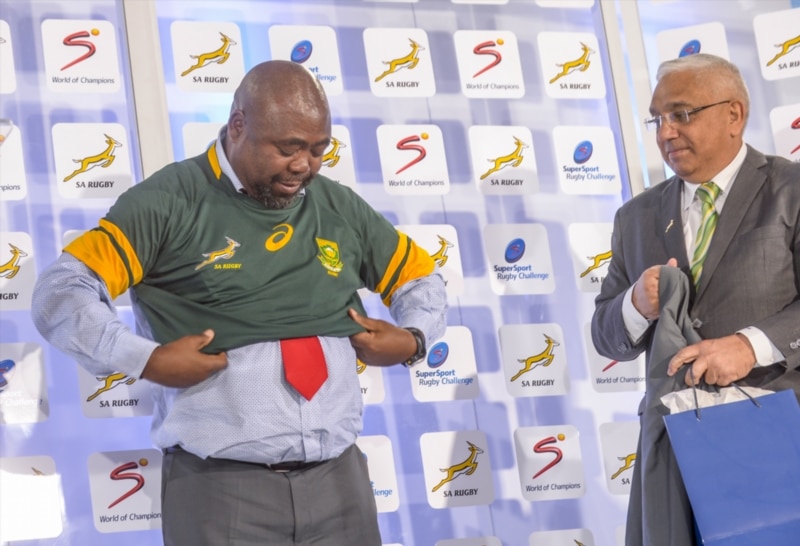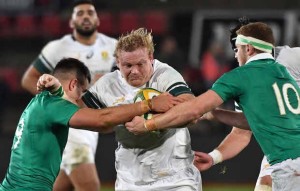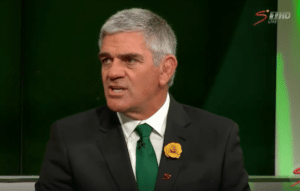New sports minister Thulas Nxesi says hosting the 2023 Rugby World Cup could make a similar impact on South Africa as the 2010 Fifa World Cup.
Nxesi visited the headquarters of SA Rugby in Cape Town on Tuesday, his first since taking office a month ago. He was met by SA Rugby president Mark Alexander and CEO Jurie Roux, as well as members of the executive council and senior staff members of the organisation.
‘Today’s meeting was basically a meet and greet and part of my campaign of listening and learning with all the sporting federations, finding out what their challenges are and hopefully we can help them deal with those challenges,’ said Nxesi.
‘Rugby is very important [in South Africa]. We know our team had a slump last year, but we believe we will go back to where we belong as South African rugby.’
Nxesi drew parallels between the Fifa World Cup in South Africa and SA Rugby’s desire to host the 2023 Rugby World Cup.
‘If I were to draw on my experiences from the soccer World Cup in 2010, in terms of nation building, we saw both black and white in the stands supporting Bafana Bafana and enjoying the football.
‘The legacy of that tournament, among black and white, is very important. A big part of that legacy is the stadia which were built, which means that we have the necessary infrastructure in place already and we don’t have to start from scratch.
‘It means the hosting costs would be seriously reduced and I believe that the hosting of the Rugby World Cup in 2023 can also leave a huge legacy and make a big impact, just like soccer did [in 2010].’
ALSO READ: No World Cup games for Newlands, Kings Park
Nxesi added that sports development would be a major focus for him in his new position.
‘I am very passionate about development and was interested to hear what SA Rugby’s development programmes entail, in the schools, because that’s where the youth is,’ said the minister. ‘They provided me with the documents and I still have to study those, but it’s good that at least there is something going on in terms of youth development.
‘However, we can always do more – but that is not only the responsibility of rugby – and the federations will have to work together with Departments of Sport and Education, pull all the necessary resources together and ensure we identify talent in rural areas and townships.
‘The role of sport is big because the majority of our youth are unemployed and if we have solid sporting programmes at clubs, village and community levels, and the youth can engage in sports over weekends, we can keep them away from crime. But that is a tall order.’
Photo: Sydney Seshibedi/Gallo Images





